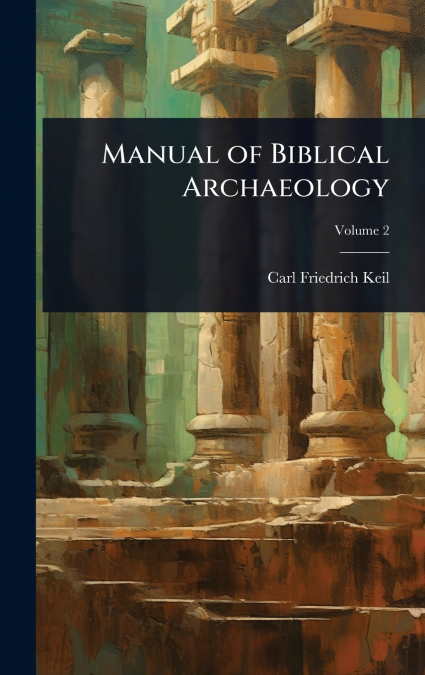
Carl Friedrich Keil
Manual of Biblical Archaeology, Volume 2, by Carl Friedrich Keil, offers a detailed exploration of the material culture and historical context of the Old Testament. Originally published in 1888, this volume provides an in-depth examination of archaeological findings relevant to understanding the world of the Bible. Keil meticulously analyzes ancient sites, artifacts, and customs, shedding light on the daily life, religious practices, and societal structures of the people of Israel and surrounding civilizations.This manual serves as an invaluable resource for students, scholars, and anyone interested in the intersection of biblical text and archaeological discovery. Keilâs rigorous scholarship and comprehensive approach make this a classic work in the field of biblical archaeology, offering enduring insights into the historical backdrop of the Old Testament narratives. Explore the ancient world through the lens of scripture with this meticulously researched volume.This work has been selected by scholars as being culturally important, and is part of the knowledge base of civilization as we know it. This work was reproduced from the original artifact, and remains as true to the original work as possible. Therefore, you will see the original copyright references, library stamps (as most of these works have been housed in our most important libraries around the world), and other notations in the work.This work is in the public domain in the United States of America, and possibly other nations. Within the United States, you may freely copy and distribute this work, as no entity (individual or corporate) has a copyright on the body of the work.As a reproduction of a historical artifact, this work may contain missing or blurred pages, poor pictures, errant marks, etc. Scholars believe, and we concur, that this work is important enough to be preserved, reproduced, and made generally available to the public. We appreciate your support of the preservation process, and thank you for being an important part of keeping this knowledge alive and relevant.